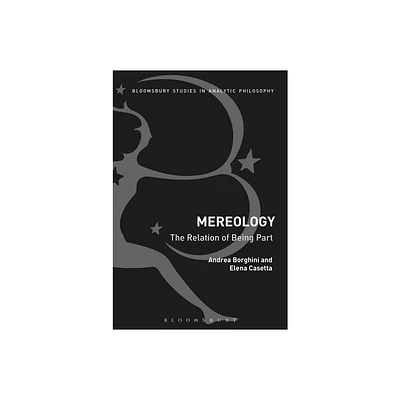Home
Pornography: A Philosophical Introduction
Loading Inventory...
Barnes and Noble
Pornography: A Philosophical Introduction
Current price: $48.99


Barnes and Noble
Pornography: A Philosophical Introduction
Current price: $48.99
Loading Inventory...
Size: OS
*Product Information may vary - to confirm product availability, pricing, and additional information please contact Barnes and Noble
Debates over pornography tend to be heated and deeply polarizedas with other topics that have to do with sex, pornography cuts to the core of our values and convictions. Philosophical debates concerning pornography are fraught with difficult questions: What is pornography? What does pornography do (if anything at all)? Is the consumption of pornography a harmless private matter, or does pornography violate women's civil rights? What, if anything, should legally be done about pornography? Can there be a genuinely feminist pro-pornography stance?
Answering these questions is complicated by widespread confusion over the conceptual and political commitments of different anti- and pro-pornography positions, and whether these positions are even in tension with one another. For a start, different people understand
pornography
differently and can easily end up talking past one another. In order to clarify the debate and make genuine philosophical headway in discussing the topic of pornography, Mari Mikkola here provides an accessible introduction to contemporary philosophical debates conducted from a feminist philosophical perspective. The starting point of the book's examination is morally neutral, and the book provides a comprehensive discussion of various philosophical positions on pornography that are found in ethics, aesthetics, feminist philosophy, political philosophy, epistemology, and social ontology. The book clarifies different stances in the debate, thus clarifying and helping readers to understand what exactly is as stake. In addition, although the book does not argue for a single outlook, it puts forward substantive philosophical views on different aspects of philosophical debates about pornography. Mikkola ultimately offers readers important methodological insights about doing philosophical work on something as ubiquitous as pornography.
Answering these questions is complicated by widespread confusion over the conceptual and political commitments of different anti- and pro-pornography positions, and whether these positions are even in tension with one another. For a start, different people understand
pornography
differently and can easily end up talking past one another. In order to clarify the debate and make genuine philosophical headway in discussing the topic of pornography, Mari Mikkola here provides an accessible introduction to contemporary philosophical debates conducted from a feminist philosophical perspective. The starting point of the book's examination is morally neutral, and the book provides a comprehensive discussion of various philosophical positions on pornography that are found in ethics, aesthetics, feminist philosophy, political philosophy, epistemology, and social ontology. The book clarifies different stances in the debate, thus clarifying and helping readers to understand what exactly is as stake. In addition, although the book does not argue for a single outlook, it puts forward substantive philosophical views on different aspects of philosophical debates about pornography. Mikkola ultimately offers readers important methodological insights about doing philosophical work on something as ubiquitous as pornography.


















